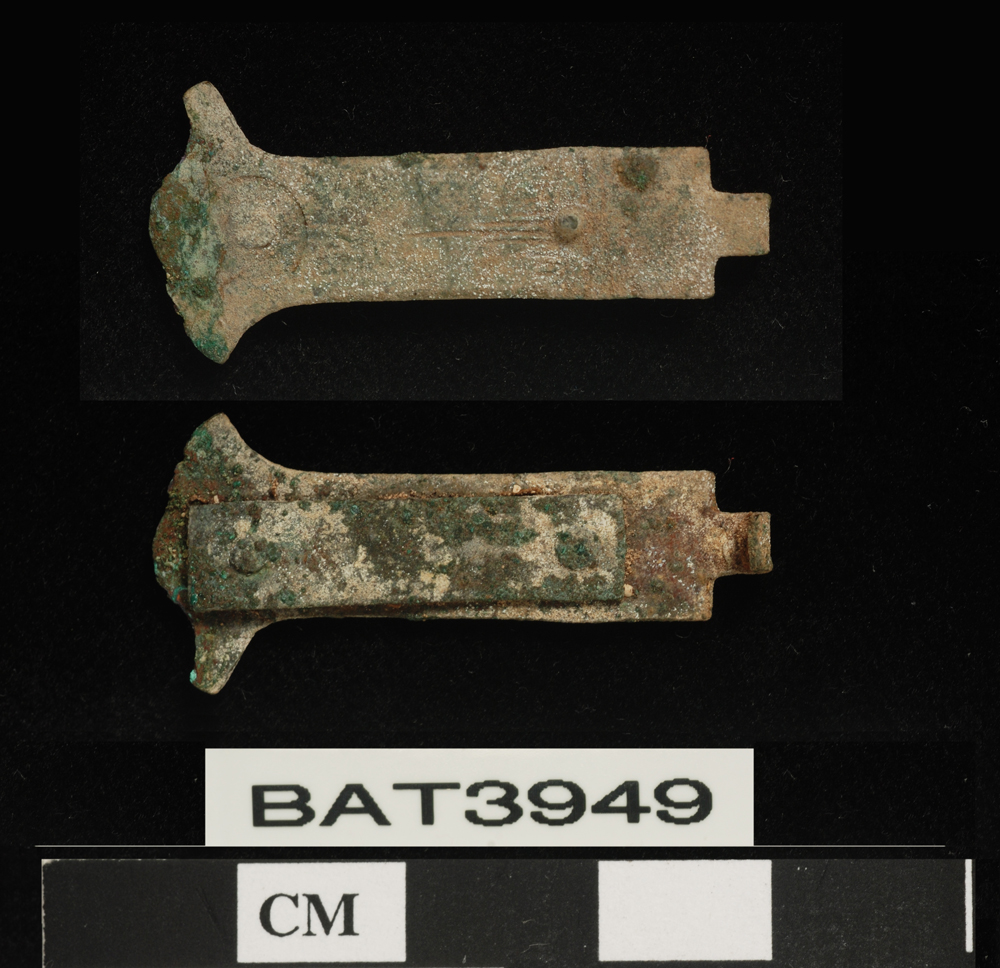Stop 4.1 - Batavia Archaeology: Book Clasps
Book clasps, Batavia's Graveyard archaeology, Western Australian Museum, Perth, BAT 4379
These metal clasps are all that survives of a book left behind near the small fort built by the survivors of the Batavia shipwreck in 1629.
Unassuming at first sight, the clasps provide valuable evidence about life on the Batavia and the desperate struggle for survival amongst its shipwrecked. Books would have been more commonly fastened with simple strings of cloth (as depicted in the Vanitas Still Life in this exhibition). A metal clasp suggests a more precious object, perhaps a Bible.
All ships of the Dutch East India Company were fitted with a small library of maps, almanacs and, above all, religious works likes psalm books or catechisms intended to provide spiritual guidance and to prevent boredom when a lack of winds allowed for little work on board. There were even specialist treatises on “Christian Seafaring” which contained prayers to be said during adverse weather or other emergencies, as well as instructions on how to observe religious feasts on board. These books were stamped with the VOC logo and belonged not to an individual, but to the company, which may explain why the book was abandoned on the island.
On the Batavia, a Calvinist minister by the name of Gijsbert Bastiaensz provided additional religious guidance by leading daily prayers. Once the shipwreck's survivors were stranded on the remote island they themselves named “Batavia's graveyard”, the minister was dealt particularly cruel blows by the mutineers: His wife and five of his children were murdered, and his only surviving daughter enslaved. Gijsbert may have been singled out because he was a figure of authority, but also because he represented officially sanctioned religion. Some of the mutineers, on the other hand, were known to have links to heretic sects. In their subsequent trial, the mutineers formulated some of their controversial beliefs and resulting lack of remorse. Denying the existence of evil or hell, they claimed that since all human behaviour is guided by God, their murderous actions must have been divinely guided, too.
Clearly, the religious literature on board had not had the desired moralising effect on these men. Instead, the mutineers served as an example of the importance of steering the crew towards virtue and ratified religion in order to prevent social unrest on long journeys.


